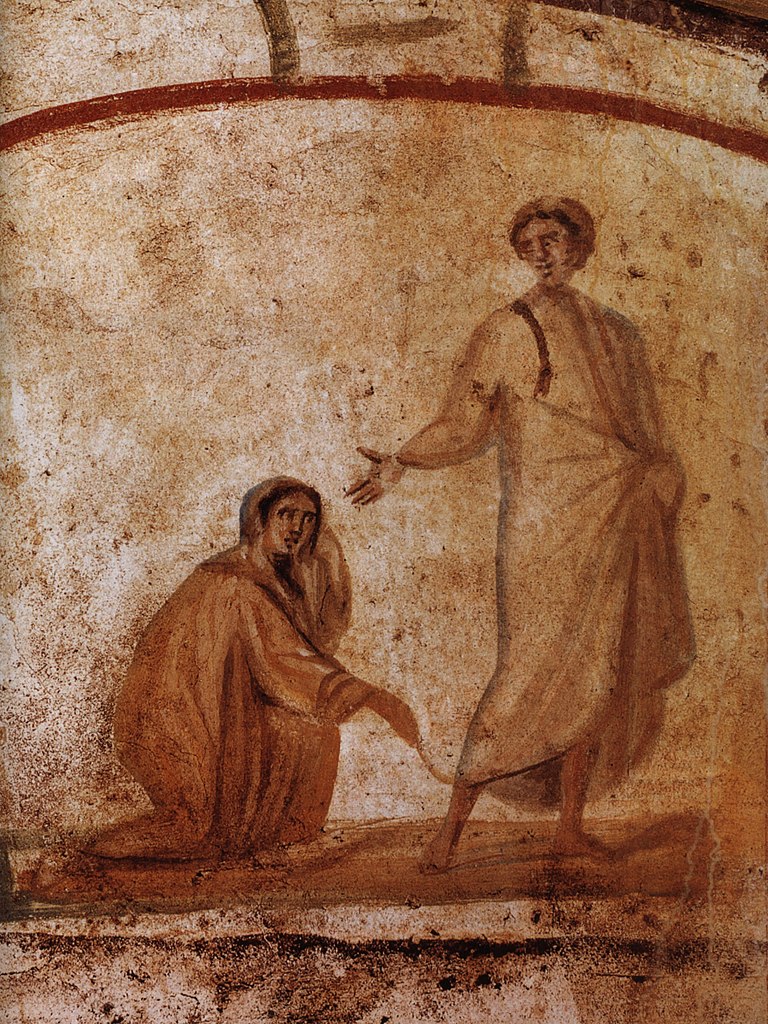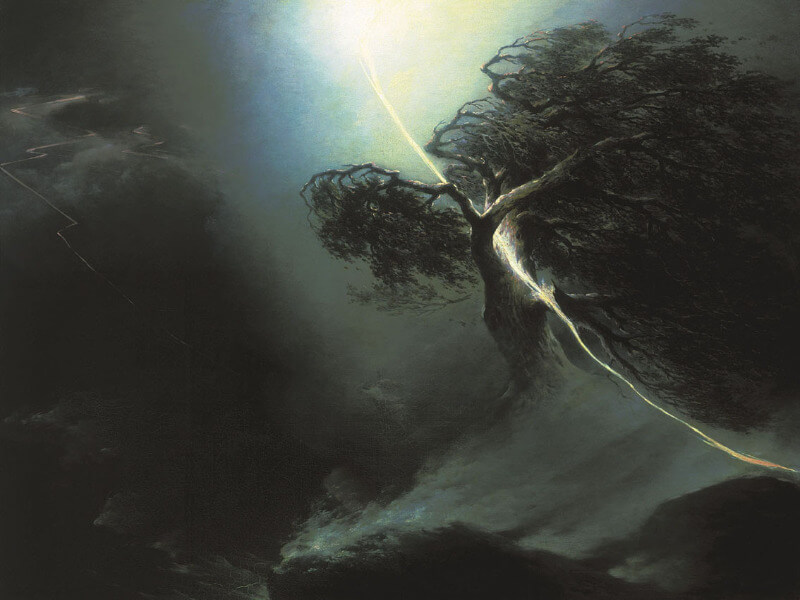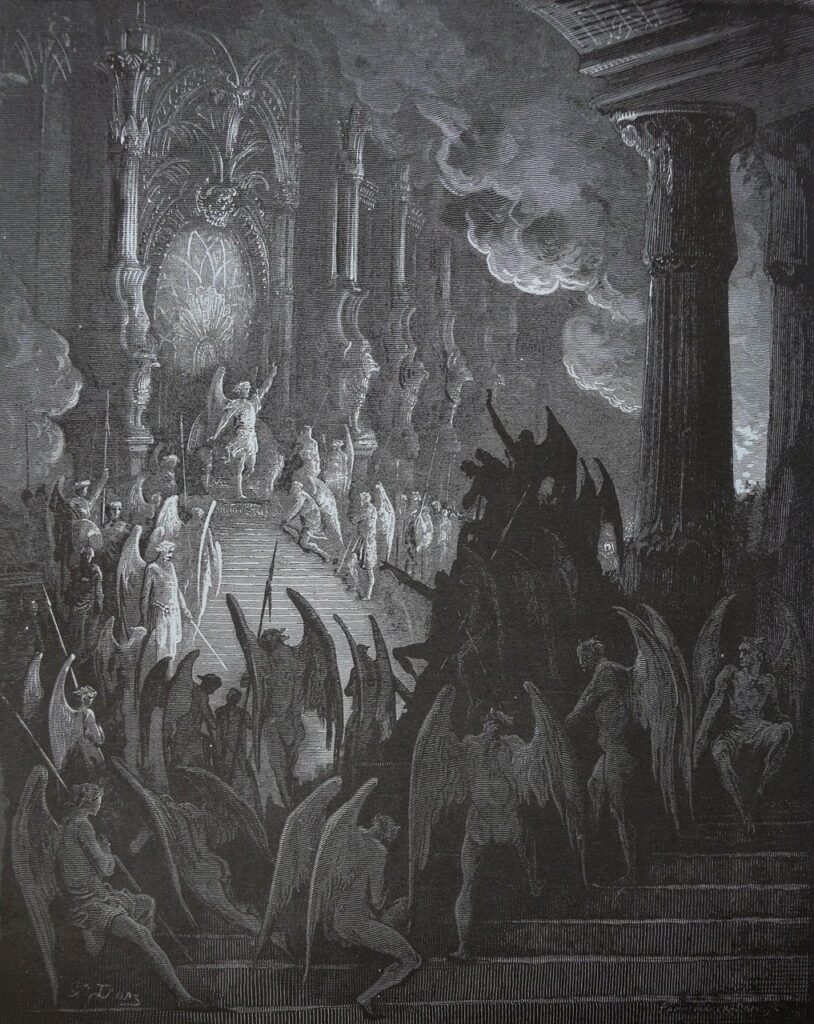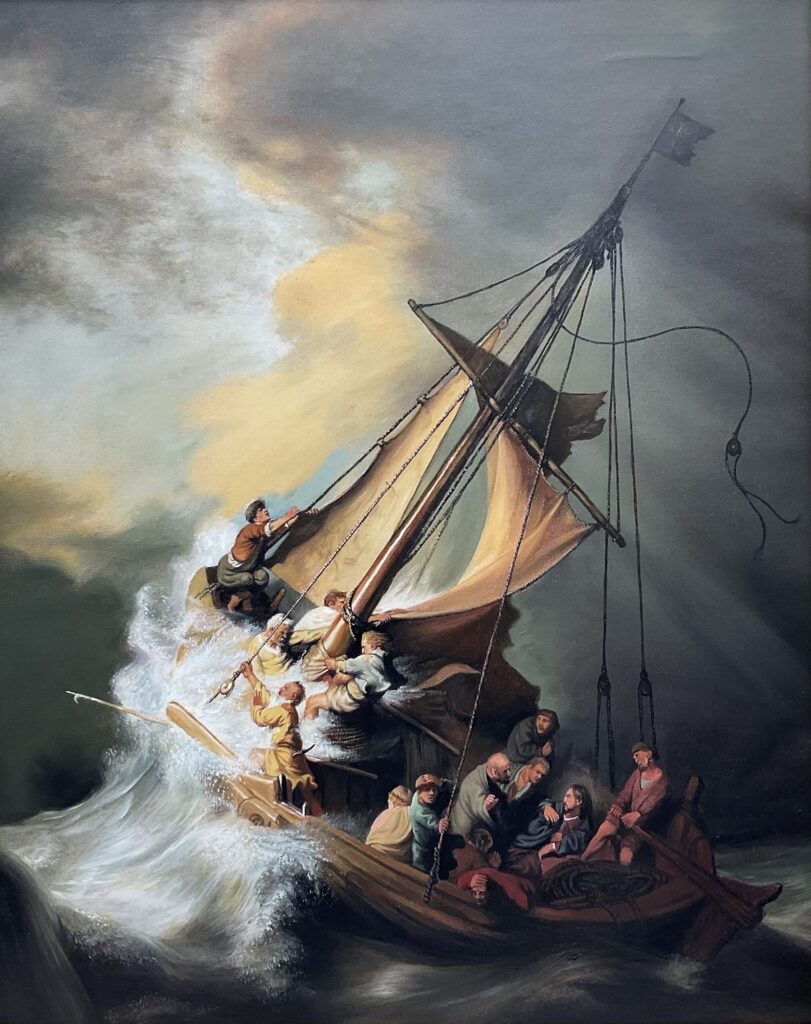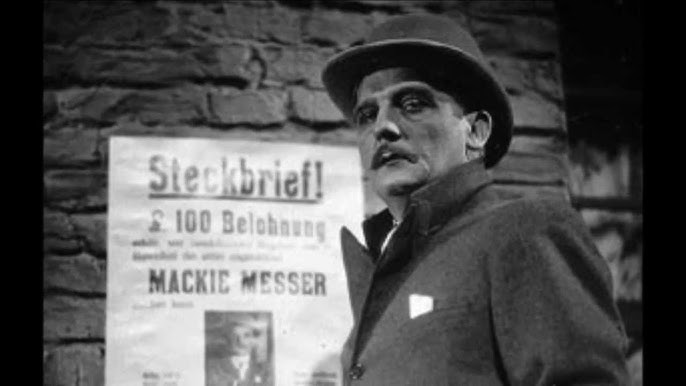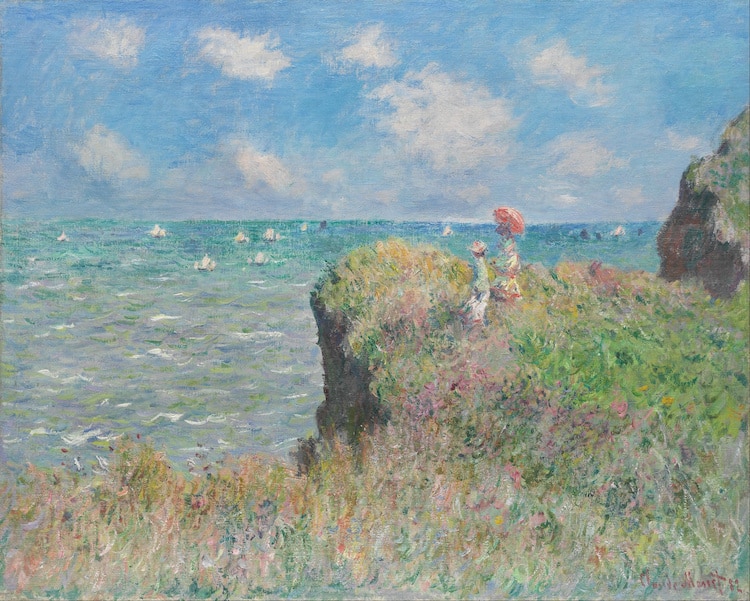Note: If you wish to receive, via e-mail, (1) my weekly newsletter or (2) daily copies of these posts, write to me at [email protected]. Comments may also be sent to this address. I promise not to share your e-mail with anyone. To unsubscribe, write here as well.
Sunday
For help in understanding today’s Gospel reading, which involves two healing stories, I turn to Lory Hess’s recently released book When Fragments Make a Whole, which she and I have written about here Lory’s project involves looking at each of the instances where Jesus heals, interpreting the incident, reflecting on it poetically, and applying it to a time in her own life when she was struggling. Her reflections are wise, heartfelt, and healing in their own right. It’s Lectio Divina at its best.
Lory sees connections between the story of the woman suffering twelve years of perpetual hemorrhages and the death of a synagogue leader’s daughter. In her view, they represent respectively a menstrual disorder and “a girl of 12 on the threshold of puberty having difficulty crossing over into womanhood.” Lory says that the two female figures represent “an excess and a deficiency in the powerful life force that flows through the organs of reproduction and guides women through the changes of their cycle.” To achieve balance, they need Jesus’s mediating presence.
Here the Gospel passage in its entirety:
When Jesus had crossed again in the boat to the other side, a great crowd gathered around him; and he was by the sea. Then one of the leaders of the synagogue named Jairus came and, when he saw him, fell at his feet and begged him repeatedly, “My little daughter is at the point of death. Come and lay your hands on her, so that she may be made well, and live.” So he went with him.
And a large crowd followed him and pressed in on him. Now there was a woman who had been suffering from hemorrhages for twelve years. She had endured much under many physicians, and had spent all that she had; and she was no better, but rather grew worse. She had heard about Jesus, and came up behind him in the crowd and touched his cloak, for she said, “If I but touch his clothes, I will be made well.” Immediately her hemorrhage stopped; and she felt in her body that she was healed of her disease. Immediately aware that power had gone forth from him, Jesus turned about in the crowd and said, “Who touched my clothes?” And his disciples said to him, “You see the crowd pressing in on you; how can you say, ‘Who touched me?’” He looked all around to see who had done it. But the woman, knowing what had happened to her, came in fear and trembling, fell down before him, and told him the whole truth. He said to her, “Daughter, your faith has made you well; go in peace, and be healed of your disease.”
While he was still speaking, some people came from the leader’s house to say, “Your daughter is dead. Why trouble the teacher any further?” But overhearing what they said, Jesus said to the leader of the synagogue, “Do not fear, only believe.” He allowed no one to follow him except Peter, James, and John, the brother of James. When they came to the house of the leader of the synagogue, he saw a commotion, people weeping and wailing loudly. When he had entered, he said to them, “Why do you make a commotion and weep? The child is not dead but sleeping.” And they laughed at him. Then he put them all outside, and took the child’s father and mother and those who were with him, and went in where the child was. He took her by the hand and said to her, “Talitha cum,” which means, “Little girl, get up!” And immediately the girl got up and began to walk about (she was twelve years of age). At this they were overcome with amazement. He strictly ordered them that no one should know this, and told them to give her something to eat. (Mark 5:21-43)
Lory imagines a backstory for both women. The hemorrhaging woman, she speculates, was raped when a teen, thought she would be able to hide that fact when she miscarried, but then found herself beset with ongoing bleeding. The little girl, by contrast, Lory imagines lacking the strength and the courage to transition into womanhood so that every day, little by little, she wastes away before finally dying.
As Lory sees it, integral to the woman’s healing is her willingness to reveal the whole truth about herself. When Jesus tells her, “Daughter, your faith has made you well,” Lory says this faith is a trust in divine love and goodness. “Healing can only take effect,” she writes,
when we let go of the fear that holds us imprisoned and open up to the good that guides our destiny, no matter how painful and incomprehensible it may appear at the moment. If we can persist patiently in spite of years of failure and suffering, and dare to reach out when we sense a healing power approaching, a sudden resurgence of energy is possible.
And then she adds,
Miracles are not events that overturn the laws of nature, but simply what happens when long-disjointed channels come back into alignment so that life can flow through them again.
As for the little girl who has died out of puberty fears, Lory says that that fear “must be replaced by trusting faith in the loving purposes of God.” When Jesus says, “Little girl, get up!” the girl finds the strength within herself to grow into her potential.
And now to the poems. The first captures the woman’s dilemma:
I could never be clean,
and no one could touch me
without soiling themselves–
no, not even the hem of my garment.
So my dark life flowed out,
abundant but useless,
love consumed by death.
Then she sees Jesus, out of whom also pours an endless source of life, although this is an affirmation, not a denial, of life:
Then I saw where he walked,
a bright star mobbed by clouds,
and a ray of hope pierced my darkness.
He, too, poured out life
from an endless source,
but no death reigned in him.
Sensing an opportunity, the woman thinks,
If I could just touch his shining,
come in range of that radiance,
my light might be rekindled,
my empty heart cease its weeping.
She therefore approaches, stealthily, and touches the hem of God:
I’ll not halt his healing of the maiden,
nor show myself or speak,
just come close in the crowd
and reach out my hand,
nearer, nearer,
now…
The girl also has a secret shame, although it’s a biological process that all girls experience. Lory imagines that her dying begins at the puberty rituals that mark childhood’s end:
That’s when I started to die a little,
as if some essence left my limbs
along with the bloody flow.
I couldn’t speak of it, too ashamed
to say I might not have the strength
for shouldering a woman’s lot
of suffering and care.
But day by day my life bled out,
and I walked in a dream unaware how I went,
until I staggered and fell.
As the girl sees it, there’s no turning back:
How could I return
to that life I’d failed?
Wouldn’t it happen again?
The bleeding, the losing,
the fainting, the dying?
Better to just float away.
When Jesus reaches out his hand, however, all this begins to change. Lory sees the moment as an acceptance of womanhood and possible motherhood:
Then his hand in mind,
and I felt flowing through it
a woman’s courage, that no man can know:
courage to bear impossible life,
to strive against hope, and face down death
for the sake of a future unborn.
The final stanza may echo George Herbert famous “Love (III)” in which the poet reports, “Love bade me welcome” and proceeds to override all the poet’s self-doubts. Lory has the girl declare,
Love asked me to live,
and at last I could answer
Yes.
So there you have it: mediating excess and deficiency by means of the way, the truth, and the life.
